Most passionate educators will argue that there’s no substitute for in-person one-on-one or small group instruction.
Yet as COVID-19-inspired cancellations and lockdown orders have squashed that concept for the time being, coffee businesses that rely on education to keep the lights on are increasingly forced toward the dull blue glow of their computer screens.
In coffee education, as in any other industry in which professional skills development is valuable, we’re in a bit of a “future is now” moment.
In late March, California-based Boot Coffee officially launched CoffeeCampus.com, its e-learning hub to expand online programming while complementing the education provider and consultancy’s physical campus and its online coffee courses portal.
California’s statewide COVID-19 shutdown accelerated the launch of the platform, although Boot Coffee Campus and Education Director Marcus Young told DCN that the concept had been about a year in the making.
“For the past year I’ve been reworking our course material for delivery online, specifically theoretical, historical, and technical knowledge that are part of our campus courses,” said Young, noting that one of the strategies employed for the CoffeeCampus.com courses involves mailing physical “learning kits.”
“We took a solution from old-school distance learning, and modified it for the new world,” Young told DCN. “Each student in our long-form webinars in roasting and sensory skills will be mailed a box with green and roasted coffee samples, sensory lexicon samples, and other tools necessary for success on the hands-on activities. These are perfect for in-depth classes that run over several weeks, with 2-4 hours of webinar followed by homework, then more webinar time, and student/instructor coaching.”
The new online platform coincided with the launch of a free weekly live webinar every Monday morning that thus far has addressed topics such as buying strategies for roasters, import and export issues with COVID-19, and producer issues.
Based on feedback from participants, the group has also just launched shorter, more narrowly focused live webinars that also allow for one-on-one online instruction, with the first two being Roasting Business Fundamentals and Elements of Roast Profiling.
The live webinars add to the company’s existing catalogue of recorded online coffee courses.
“Under our umbrella of Boot Coffee, we now have Boot Coffee Campus, the flagship training facility for in-depth hands-on training, [and we] have long offered video based training with CoffeeCourses.com which is 100% independent work,” said Young. “The advantage gained by offering CoffeeCampus.com eLearning is that we now have a hub that connects and links video based training to campus training. Through webinars, we are super responsive to student questions and adapting to individual goals — similar to our in-person courses at Boot Coffee Campus. It’s also a good resource for live course graduates to pick up review sessions. All in all it’s a perfect bridge between what we’ve already been doing.”
Meanwhile, up the coast in Oregon, the longest-running coffee education course in the country is for the first time being offered entirely online. The online American Barista and Coffee Workshop course is designed for existing and aspiring coffee retailers by longtime the longtime Portland-based education and consulting firm Bellisimo Coffee Advisers.
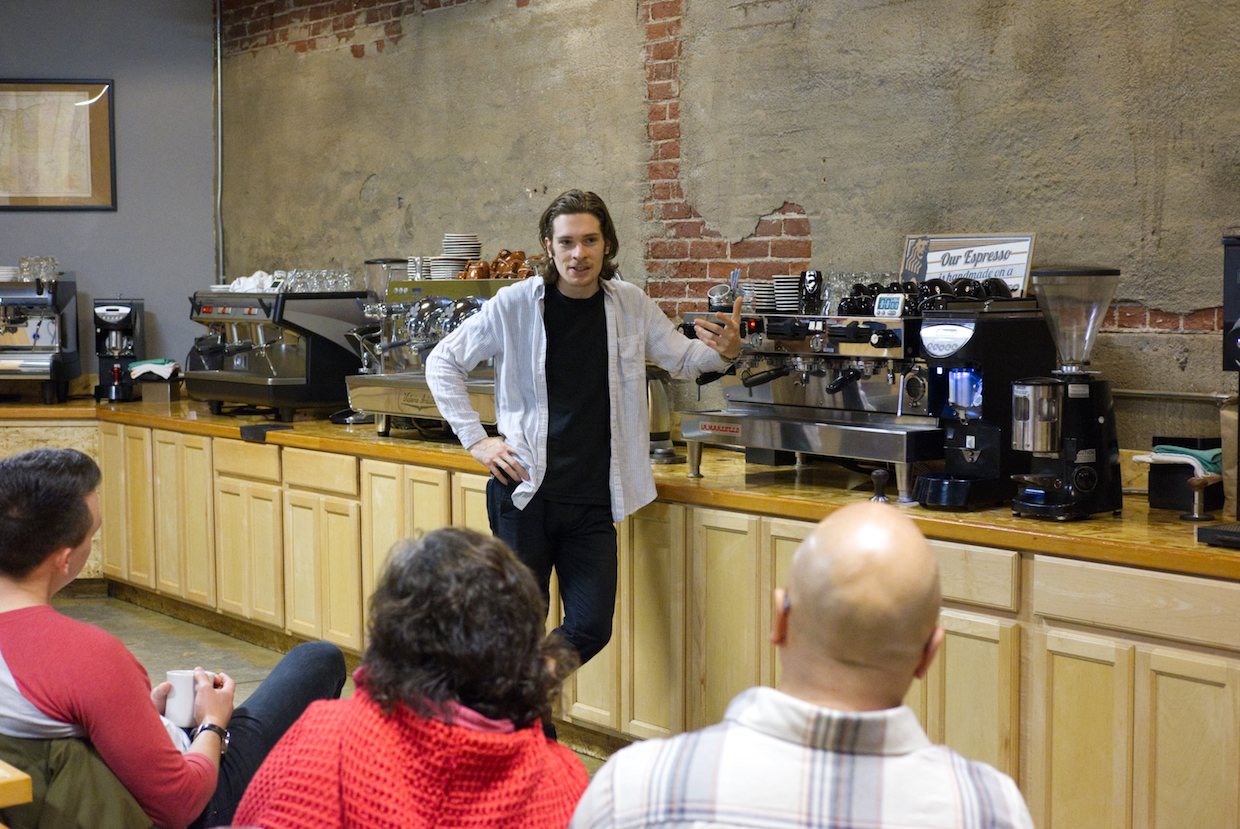
After nearly two decades of exclusively in-person education for its coffee shop business course, Bellisimo Coffee Advisors has taken the curriculum online. Courtesy photo.
Though the coursework does not involve live instruction, it nonetheless represents a major shift in the firm’s educational reach.
“The question of online vs in-person is an interesting one for Bellissimo,” Bellisimo Marketing Manager John Leinonen told DCN. “We launched online barista training a few years ago as a way to dip our toes into online learning, but we’ve always recommended OBT as a supplement to in-person learning because making coffee is such a tactile experience. However, when it comes to teaching relevant business concepts, the line between the quality of online and in-person learning is a lot less apparent.”
COVID-19 may also be affecting some educators’ curricula, as the realities of running a coffee business in the dawn of COVID-19 are rapidly changing, with survival at the fore.
“We’ll never be able to provide a perfect one-to-one with our business workshop experience, but we really took care to pack as much as possible into this course to help people make responsible, financially healthy coffee businesses,” said Leinonen. “We also felt incredibly strongly that a coffee business course with an emphasis on the business side would be a valuable resource at a time like this.”
Perhaps the specialty coffee industry’s largest education organization in terms of participation numbers is the Specialty Coffee Association, which has seen a dramatic decline in the number of coffee skills course registrations over the past two months.
SCA Education Content Manager Ben Helt told DCN that the group is maintaining a suite of educational services for members right now, including its 25 magazine, SCA store publications, and research, newsletters and other resources that fall under a broad SCA education umbrella.
While all those resources are readily available online, in-person instruction between people seeking SCA-sanctioned professional certifications and certified SCA instructors (ASTs), is mostly not.
One of the organization’s immediate responses to social distancing and sheltering has been to extend the three-year AST licenses across the board for three months.
Helt said the group is also hoping to spread the word to its network of certified educators that it’s ok to conduct some of the live teaching and learning in the Coffee Skills Program, Coffee Sustainability Program and forthcoming Coffee Technicians Program online, outside of physical authorized SCA training campuses.
While eventually practical exams for many of the courses within these three tracks are required for certification, much of the theory leading up to those exams can be taught online, Helt said.
“We’re seeing some of the ASTs getting very creative and delivering the theoretical content online right now,” Helt said, noting that the SCA has been attempting to also remove any barriers for live online education between ASTs and students.
“We are trying to make some administrative processes easier,” Helt said. “An intermediate course that might have been 14 hours over two days — they might now break that out into two hours over three sessions, then an 8-hour practical session at a later date.”
As quality-of-education standards everywhere are being tested by the prohibition of in-person contact, the SCA has also been leading webinars for ASTs in multiple languages to convey best practices and expectations.
Helt said the group also values the autonomy of ASTs, whom he credited for maintaining a collaborative spirit despite what could otherwise be a time of fragmentation and isolation.
Young echoed a similar sentiment about online education delivery itself, noting the potential inclusivity benefit of online learning.
“I’ve always thought courses are the most valuable [for] students when I create space for students to learn from one another,” Young said, noting Boot Facebook groups, Slack channels and other forums for online collaboration. “Making space for this and identifying technological tools to facilitate group discussions during a webinar and ongoing discussions outside of class was really important.”
As for coffee curriculum, this pandemic and the economic implications may dictate some changes moving forward.
“We know a roasting machine is going to operate the same way that it does now,” said the SCA’s Helt. “But we may also find that people want more information about how to insulate them against a financial crisis.”
Nick Brown
Nick Brown is the editor of Daily Coffee News by Roast Magazine.




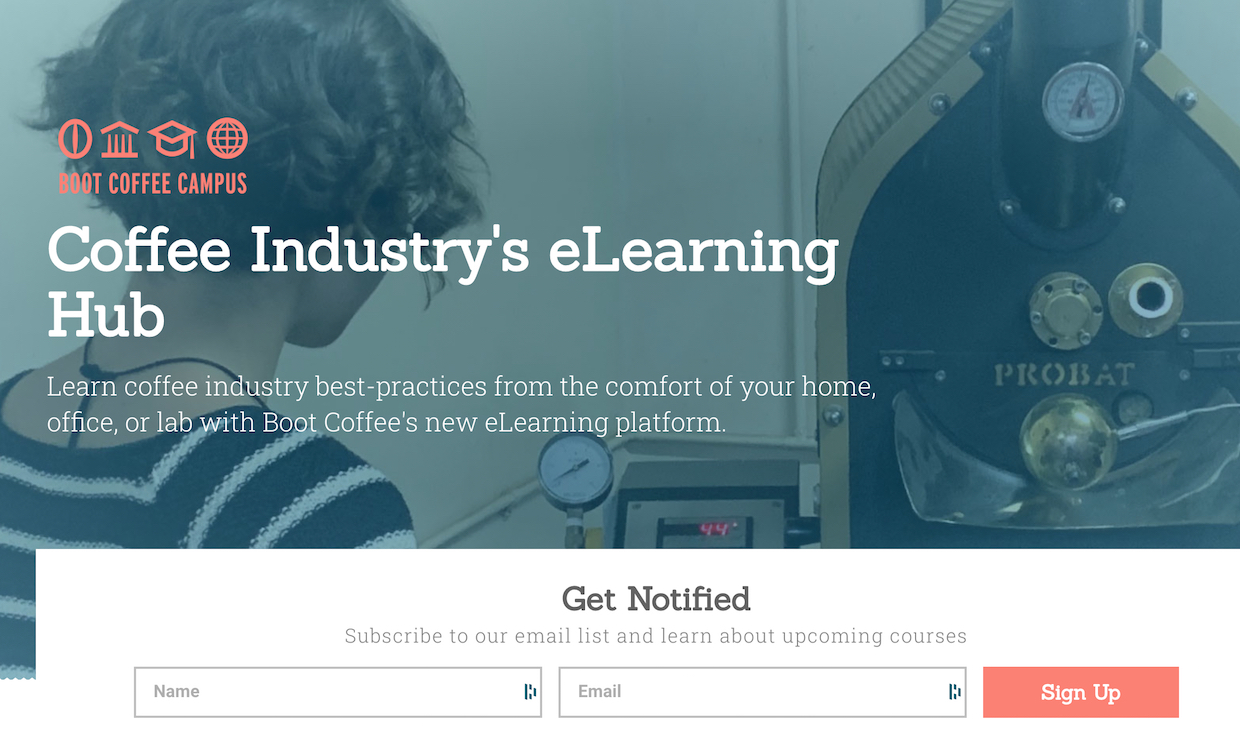
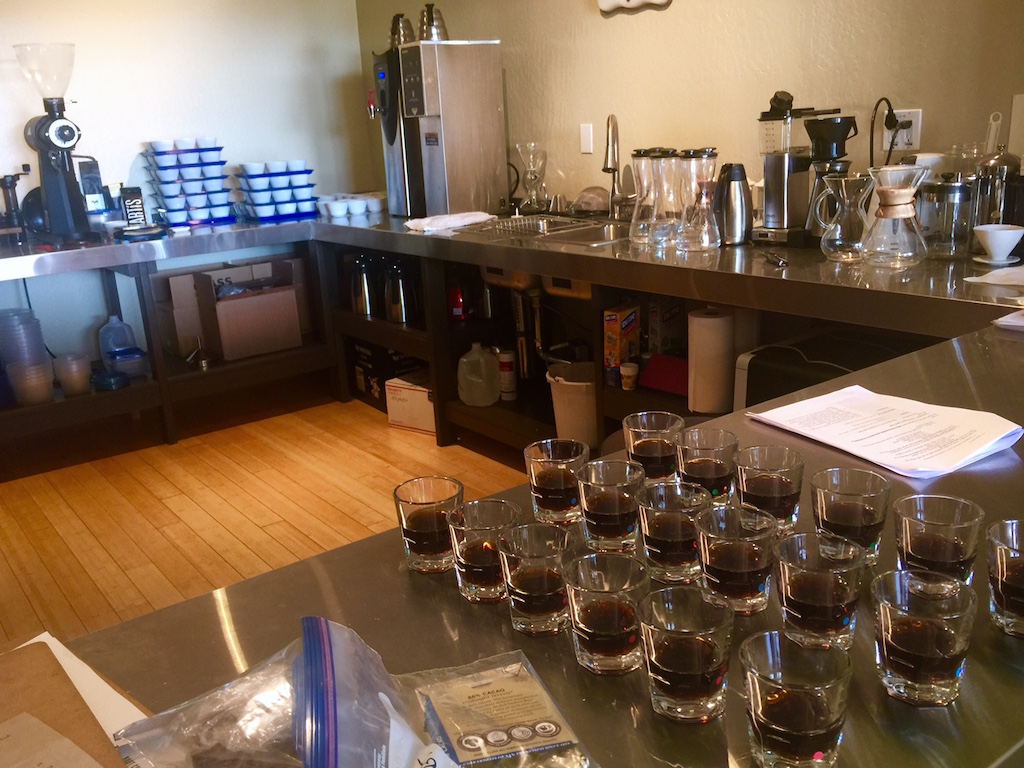
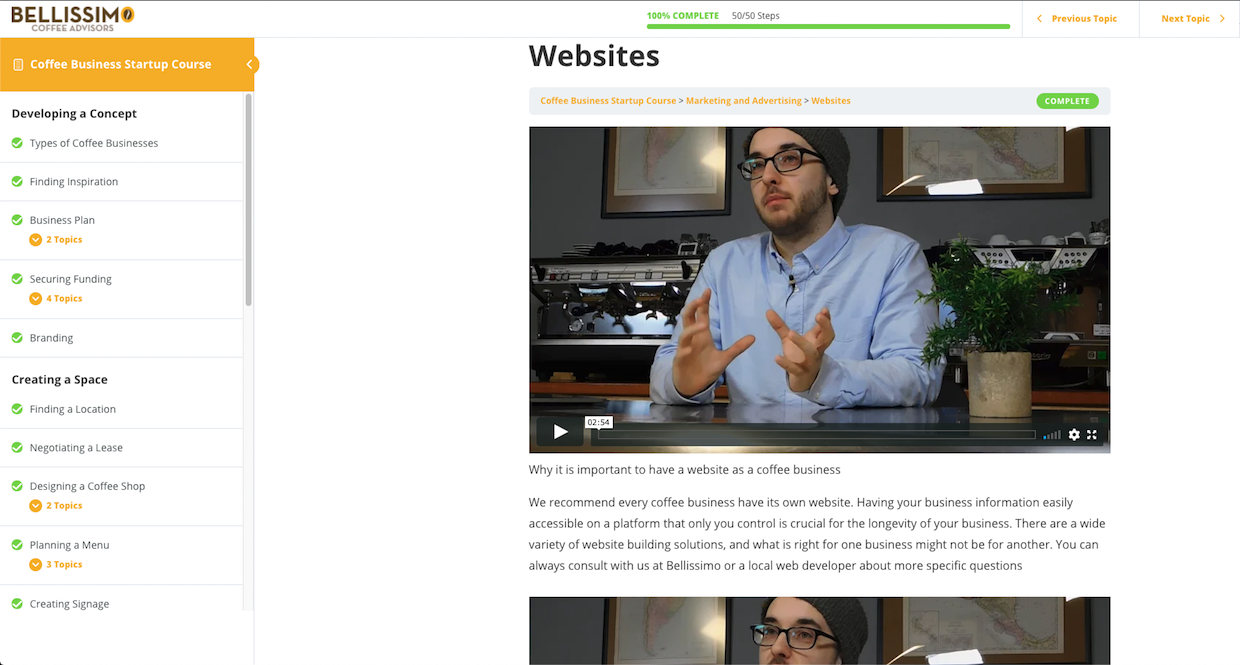
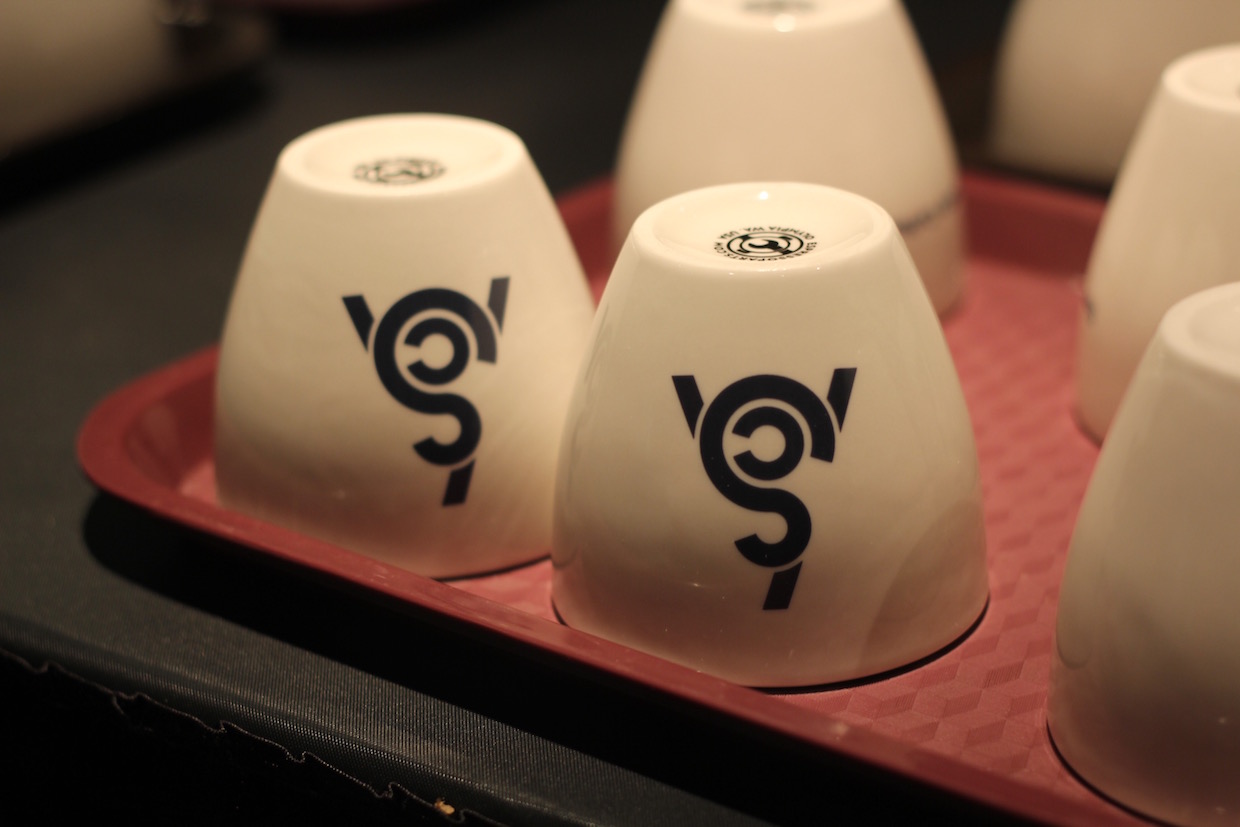



Comment